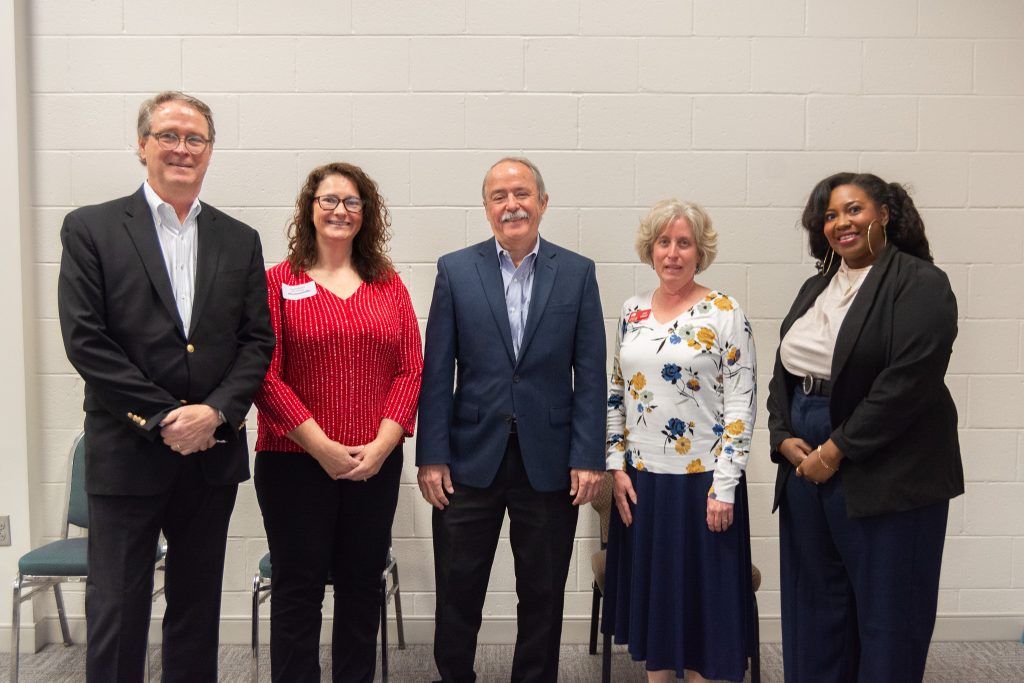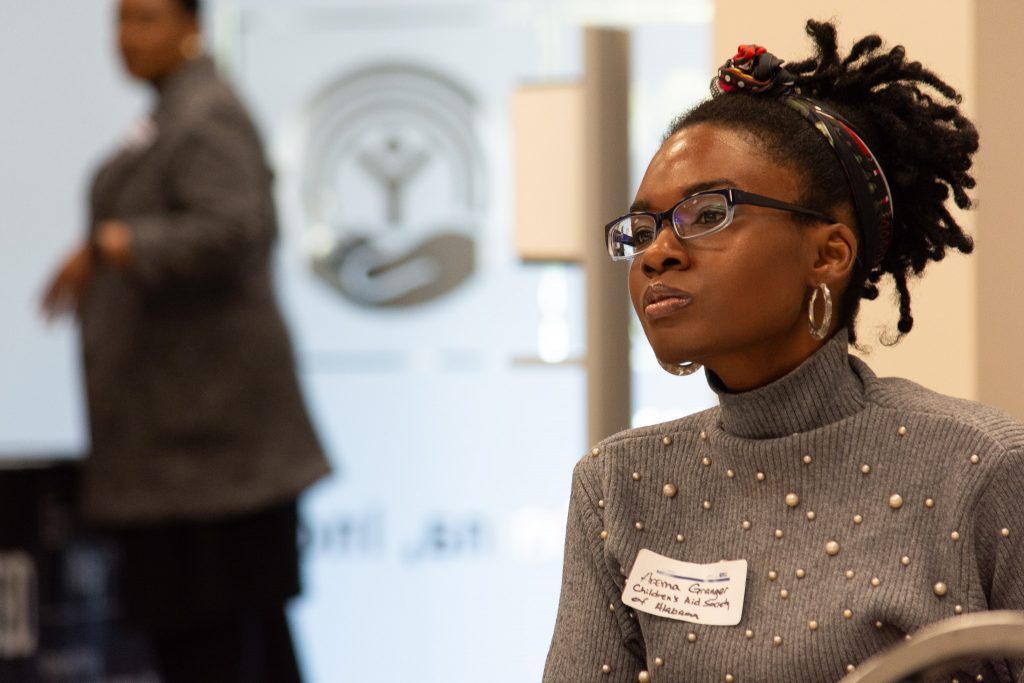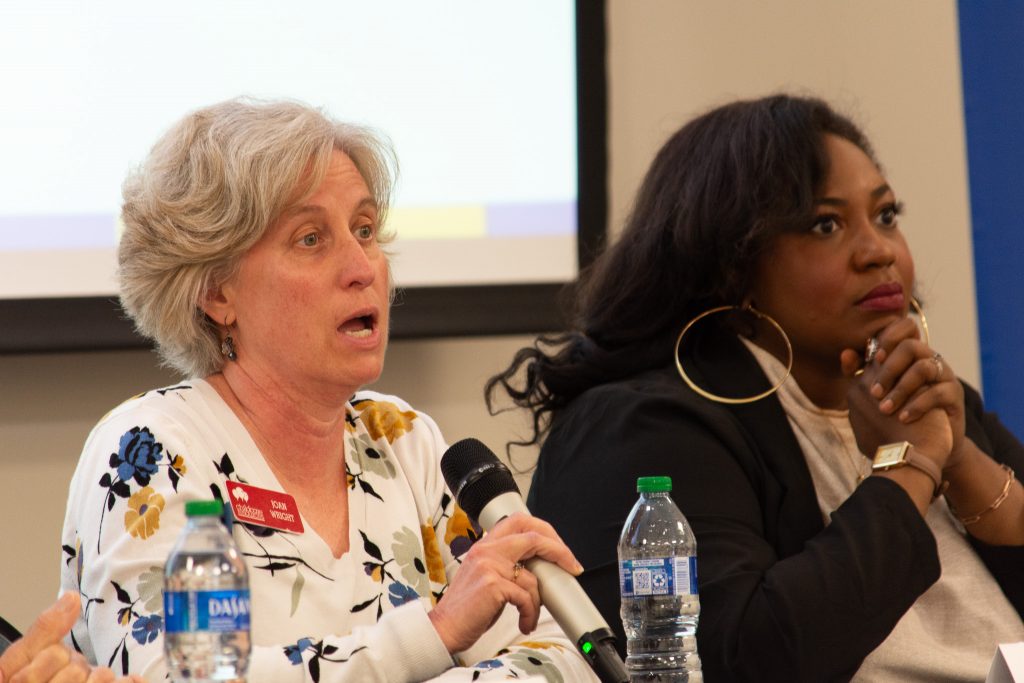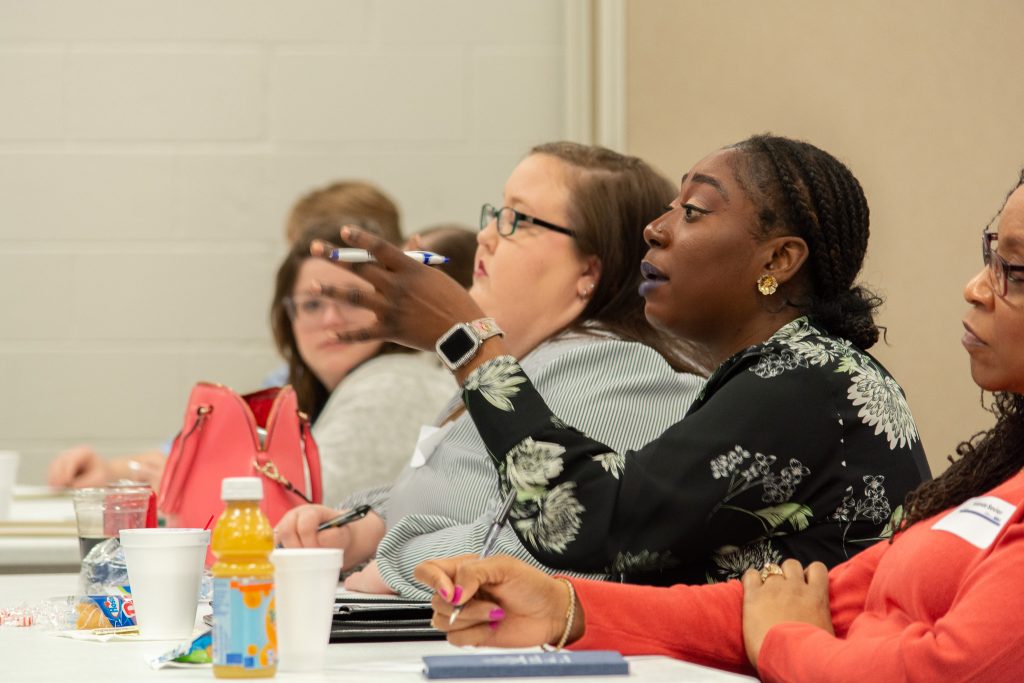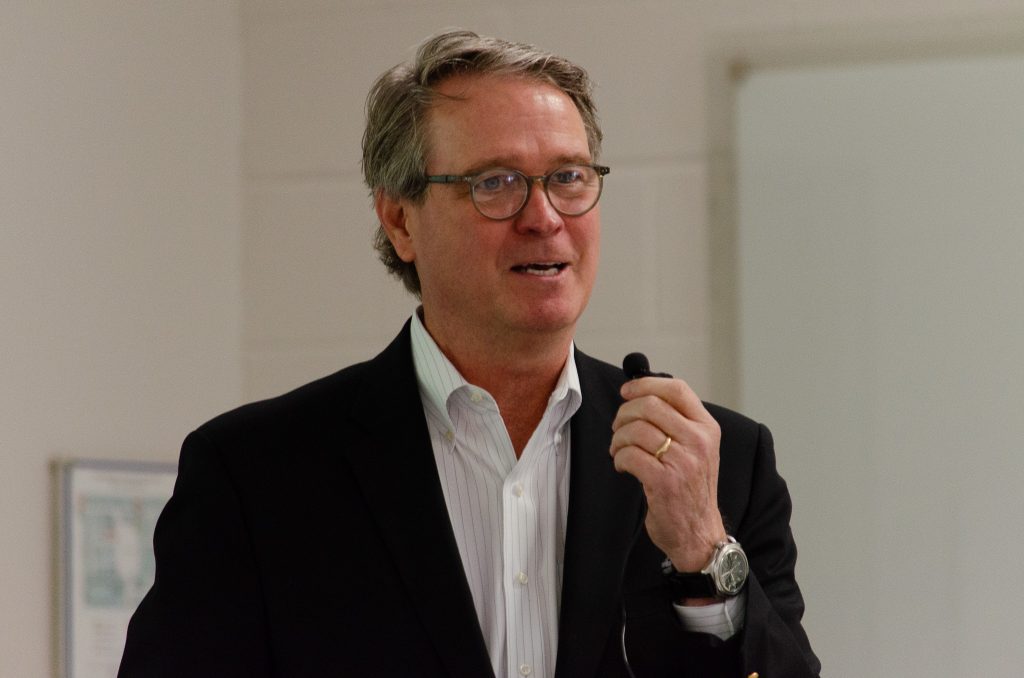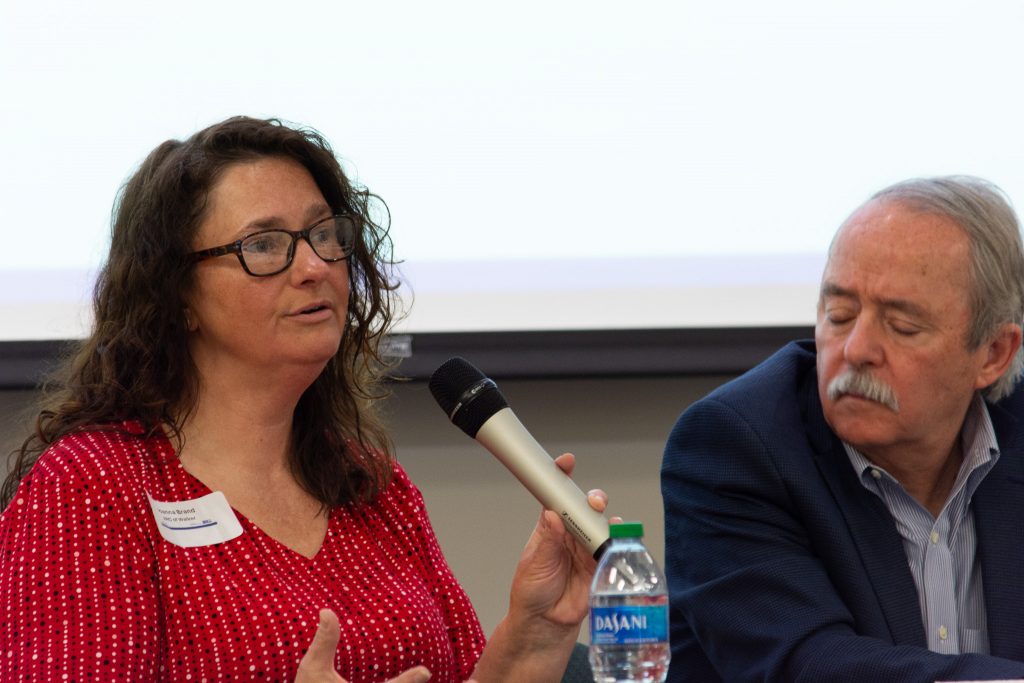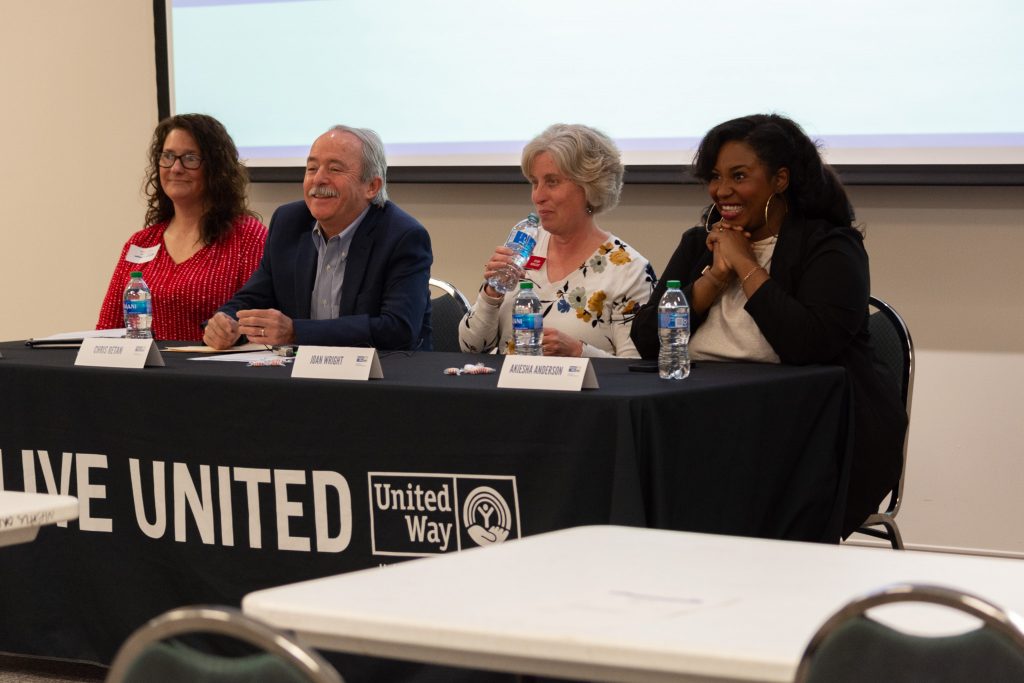
Joan Wright knows about having to speak in high-pressure situations.
As Executive Director of Childcare Resources, a United Way of Central Alabama (UWCA) partner agency, Wright has frequently found herself in the intimidating position of presenting to the Birmingham City Council. Near the end of council meetings, residents may present their concerns to the nine councilors, who are seated above them in a semicircle. Each speaker is allotted a maximum of three minutes; and there are lights signaling whether there is time remaining or not – adding to the intensity of the moment.
Wright shared her experience during a recent panel discussion about how to advocate for your agency, hosted by UWCA on its Birmingham campus.
“I have stood there at that podium during Birmingham City Council meetings and my legs are literally trembling,” Wright said.
A stalwart advocate for her organization, as well as early childhood education throughout the state, Wright often has reason to speak with legislators. She said that it’s vital for leaders of nonprofits, such as hers, to develop confidence in presenting their case. That comes with practice and persistence.
“The way you do that is to just keep showing up,” Wright said.
The panel discussion, another in a series of partner agency trainings hosted by UWCA, also included:
- Akiesha Anderson, Policy and Advocacy Director at Alabama Arise.
- Joanna Brand, Executive Director at the Arc of Walker County.
- Chris Retan, Executive Director at Aletheia House.
UWCA Board Member Alan Rogers, a veteran litigator and partner at Balch and Bingham, moderated the discussion. Kathie Hiers, CEO of AIDS Alabama, was in Washington D.C. on the day of the discussion but provided remarks in a pre-recorded video for attendees.
During the discussion, Retan emphasized the importance of cooperation and working together for effective advocacy. He specifically pointed to the creation of the Alabama Fentanyl Abuse Treatment and Prevention Coalition, a group he assembled.
“I’ve been doing work around addiction for 45 years. We went through the crack epidemic, and we went through the Quaaludes epidemic. In all these, a lot of people got addicted, but not as many people were dying as with fentanyl,” Retan said. “There was no group [specifically focused on this problem], so I just made one up…and now we have over 400 people who are part of that.”
Bailey Real, Assistant Director at Pathways, said the primary takeaway she got from the discussion was that there was “power in numbers” when advocating for resources from legislators.
“We’re all fighting the same battle. How can we fight that together but still get funds for our organization? I thought that was really great,” Real said. “It’s not just Pathways. It’s all of the homeless service providers, all the childcare providers in Birmingham.”
Paul Garing, Executive Director at Lakeside Hospice, said while his organization doesn’t typically advocate directly to legislators, the discussion helped him focus on the need to fully educate all of his organization’s staff and volunteers on how to advocate for Lakeside.
“Most of our patient referrals come from individuals. I think we need to do a better job of making sure that all of our 14 board members, all of our 32 staff members can easily do that elevator speech again and tell Lakeside’s story.”
The advocacy panel discussion panel is one of an ongoing series of trainings UWCA has offered for its 79 partner agencies. Other recent training sessions have included a Financial Controls Training and a day devoted to understanding the roles of executive director and board member.
For more about UWCA’s investments in our partner agencies, go to https://www.uwca.org/partners.
